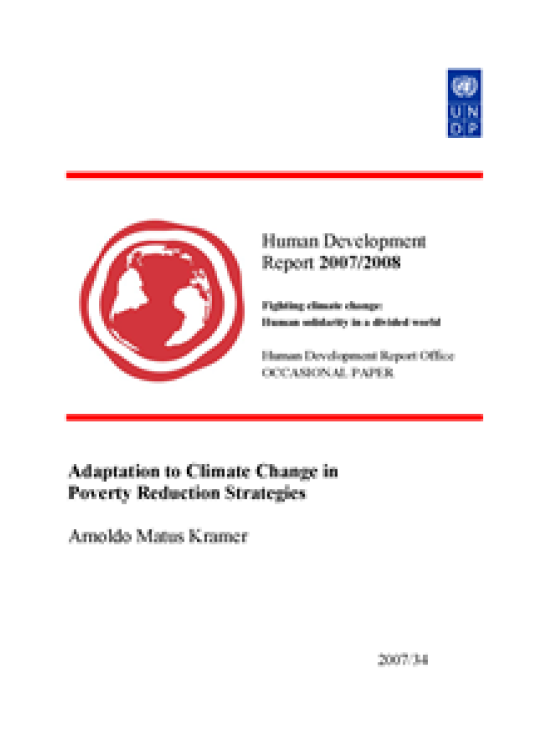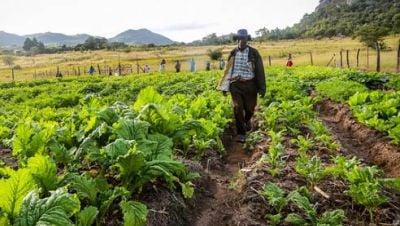Adaptation to Climate Change in Poverty Reduction Strategies

Download Report by Language
Document
matuskramerarnoldo.pdf
(129.36 KB)
Citation
Kramer, Arnoldo Matus. 2008. Adaptation to Climate Change in Poverty Reduction Strategies. New York.
Adaptation to Climate Change in Poverty Reduction Strategies
Posted on: January 01, 2008
Climate Change presents a major challenge for development and poverty eradication. There is a relation between poverty in low-income countries and economies heavy dependent on weather-sensitive resources, such as agriculture. Millions of poor people in developing countries are vulnerable to extreme weather events and climate change impacts on ecosystems, water and agriculture. This report looks at nineteen countries and their Poverty Reduction Strategy Papers (PRSP) and National Adaptation Programmes of Action (NAPA) by assessing criteria such as: a) the consideration of climate change scenarios and the vulnerabilities of the country; b) the analysis of poverty-climate links; and c) the climate change institutional framework of the country. It is important to acknowledge that the assessment does not provide a quantitative assessment. It assesses the integration of adaptation to climate change and climate risks management within a subjective qualitative framework. The results show that most countries have a low incorporation of adaptation to climate change into PRSP. But, that by incorporating NAPAs a better performance is shown. The best practices study cases present: Bangladesh successful approach to mainstream natural disaster management, which facilitated the evolution to incorporate climate change into PRSP. Mexico’s Interministerial Climate Change Commission is presented as a good example of crosssectoral institutional integration. The paper illustrates that natural hazards mainstreaming into PRSP and the development of NAPAs are a step forward into the establishment of an institutional process to incorporate climate change into national policies. The World Bank and the UNFCCC should coordinate efforts to support developing countries in their efforts to incorporate adaptation to climate change in PRSP. Countries need to strength the coordination, networks and information flows between ministries, different levels of government and civil society to have a more efficient integration of climate change variables into poverty reduction and development strategies.

